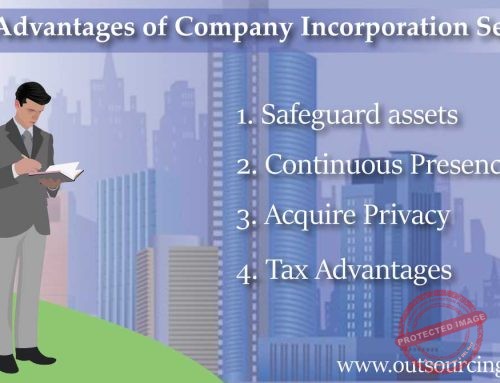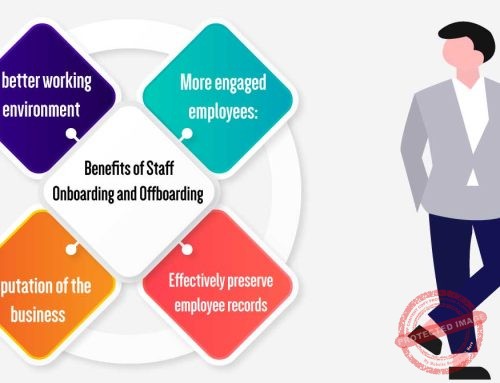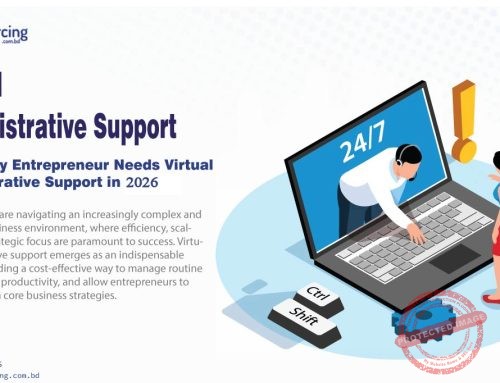Business registration is essential for legal protection as it formally recognizes your enterprise as a distinct legal entity, separate from its owners and operators. This separation is crucial for personal liability protection, meaning personal assets are not at risk in case your business faces lawsuits or debts.
Moreover, registering your business secures your brand name and intellectual property, preventing others from using your business name or duplicating your products or services. It also facilitates legal compliance, necessary licenses, and compliance with tax requirements.
Essentially, business registration lays the foundational framework for your business to operate within the legal confines of your jurisdiction, ensuring that you can conduct your business with the confidence that you are protected by law.
This protection is not just about safeguarding against legal disputes but also about establishing credibility and trust with customers, suppliers, and investors, which are vital for long-term success.

7 Common Challenges of Business Registration
The process of business registration, while crucial for legal operation and protection, comes with its own set of challenges that entrepreneurs and business owners often face. Some of the most common challenges include:
- Complexity of Legal Requirements: Understanding and adhering to the myriad legal requirements across different jurisdictions can be daunting, especially for new entrepreneurs unfamiliar with the legal landscape.
- Choosing the Right Business Structure: Deciding on the most appropriate business structure involves weighing factors such as liability, taxation, and operational flexibility, which can significantly impact the business’s future.
- Costs Involved: Registration fees, along with potential legal and professional consultation fees, can add up, posing a financial challenge for startups and small businesses operating with limited budgets.
- Paperwork and Documentation: The volume and complexity of required paperwork can be overwhelming, demanding precision and often necessitating expert assistance to ensure accuracy and compliance.
- Licenses and Permits: Identifying, applying for, and obtaining the necessary licenses and permits can be a time-consuming process, complicated further by varying requirements across different industries and locations.
- Business Name Registration: Selecting a unique and legally compliant business name involves navigating existing trademarks and business registrations, a process that can be both confusing and frustrating.
- Compliance with Regulations: Staying informed about and compliant with ongoing local, state, and federal regulations requires diligence and can be particularly challenging as laws evolve and business activities expand.
Overcoming Common Challenges of Business Registration
Overcoming the common challenges of business registration involves a strategic approach and careful planning. To navigate the complexity of legal requirements, entrepreneurs should consider consulting with legal and business professionals who specialize in business law and registration processes.
To manage registration costs, entrepreneurs can explore startup-friendly resources, such as affordable legal services or government aid. Simplifying paperwork is achievable with business registration software and organized checklists, streamlining the process efficiently.
For licenses and permits, leveraging online resources provided by local and federal agencies can clarify requirements and streamline applications. Ensuring a unique and compliant business name often involves conducting thorough searches through business databases and considering trademark registration for added protection.
Lastly, to ensure regulatory compliance, entrepreneurs should stay updated on legal changes via law updates, join business associations, and regularly consult legal advisors. These proactive measures help navigate business registration challenges and establish a firm legal and operational base.
6 Reasons: Why Need Your Business Registration Today
Registering your business today is a crucial step for several compelling reasons:
- Legal Protection: Registering your business grants legal protection by distinguishing personal and business liabilities. This separation safeguards your assets against business-related lawsuits or debts.
- Brand Identity: Registration secures your business name and brand, preventing others from using similar identifiers that could confuse customers and dilute your brand’s presence in the market.
- Access to Finance: Banks and financial institutions often require formal business registration for opening business accounts or securing loans. Registration can thus facilitate access to capital and business credit.
- Customer Trust: A registered business is seen as more credible and trustworthy by customers and partners. It signals a commitment to professionalism and stability, enhancing your reputation in the marketplace.
- Tax Benefits: Depending on your business structure and jurisdiction, registration can offer tax advantages. It enables you to deduct business expenses, access certain tax credits, and potentially lower your tax burden.
- Legal Compliance: Registration ensures compliance with local, state, and federal laws. It’s necessary to obtain the licenses and permits required to operate your business legally and avoid penalties or shutdowns.
How to Choose the Right Business Plan for Your Startup?
Choosing the right business plan for your startup involves understanding your business’s unique needs, goals, and the audience you intend to reach. Start by evaluating your business model to determine whether a traditional business plan or a lean startup plan best suits your venture.
A traditional business plan, detailed and comprehensive, is ideal for businesses requiring significant funding from banks or investors, as it covers every aspect of the business in depth, including market analysis, organizational structure, marketing and sales strategies, and financial projections.
On the other hand, a lean startup plan, concise and agile, is perfect for startups looking to quickly adapt to changes and validate their business model with minimal costs. This plan focuses on key hypotheses and rapid iterations based on customer feedback.
Consider your audience: if you’re seeking investment, a traditional plan might be necessary; for internal guidance, a lean plan could suffice. Ultimately, the right business plan aligns with your startup’s objectives, facilitates growth, and meets the requirements of your potential investors or stakeholders.
Risk Management Strategies for Your Business Plan
Incorporating risk management strategies into your business plan is essential for identifying potential risks and implementing measures to mitigate them. Here are some key points to consider when developing risk management strategies for your business plan:
- Risk Identification: Start by systematically identifying potential risks that could impact your business. These can include financial risks, operational risks, market risks, legal risks, and environmental risks.
- Risk Analysis: Assess the likelihood and impact of each identified risk. This helps prioritize the risks based on their potential to affect your business operations or financial health.
- Risk Mitigation Strategies: Develop strategies to mitigate the identified risks. This could involve diversifying income sources, purchasing insurance, implementing strong contracts, or developing contingency plans.
- Regular Monitoring and Review: Risk management is an ongoing process. Regularly monitor the risk environment and review your risk management strategies to ensure they remain effective and relevant.
- Financial Planning: Ensure that your financial planning includes provisions for risk management, such as setting aside reserves or establishing lines of credit to handle unexpected events.
- Compliance and Legal Risks: Stay informed about legal and regulatory requirements affecting your business. Implement policies and training to ensure compliance and reduce the risk of legal issues.
Why Financial Projections are Critical in Business Planning?
Financial projections are a critical component of business planning as they provide a quantitative forecast of your business’s financial health over a specific period. These projections, including income statements, balance sheets, and cash flow statements, serve multiple pivotal roles.
They help entrepreneurs and management to set realistic goals and benchmarks for growth, profitability, and cash management. By mapping out expected revenues, expenses, and cash flows, businesses can identify potential financial shortfalls and opportunities, enabling proactive adjustments to strategies or operations.
Financial projections are essential for securing funding and attracting investors. They offer a clear picture of the business’s potential for success, demonstrating to lenders and investors that the business has a viable path to profitability and growth.
Moreover, these projections facilitate strategic decision-making, allowing businesses to evaluate the financial implications of different strategies and choose the most sustainable path forward. Financial projections act as a financial blueprint, guiding businesses toward their objectives while enabling them to manage resources efficiently and make informed decisions.
How to Starting a Business in Minimum Capital?
Starting a business on a tight budget necessitates a focus on lean operations and efficient use of resources. Opt for a business model with low initial expenses, like service-based industries or dropshipping, to avoid significant inventory costs.
Utilize digital platforms to market your business, leveraging social media, SEO, and content marketing to reach your audience without the hefty price tag of traditional advertising. Embrace the power of bootstrapping, funding your venture through personal savings, and operational cash flow instead of seeking outside investment right away.
This approach encourages frugality and innovation, pushing you to focus on core offerings and validate your business model quickly. Consider a minimal viable product (MVP) to test your market hypothesis with the least amount of investment.
Networking and partnerships are key, enabling barter services, collaborative marketing, and mentorship. Prioritize crucial spending, use free or affordable resources, and maintain a flexible, growth-focused approach to successfully start and expand your business with limited funds.
Essential Resources for Starting a Business
Starting a business requires access to a variety of resources to ensure a smooth launch and sustainable growth. Here are some essential resources for entrepreneurs embarking on a new business venture:
- Business Plan Template: A comprehensive guide for outlining your business strategy, financial projections, and market analysis.
- Market Research Tools: Platforms and software that help you understand your target audience, competition, and industry trends.
- Legal and Regulatory Guidance: Information on necessary legal documents, permits, and registrations required to legally operate your business.
- Financial Management Software: Tools for budgeting, accounting, invoicing, and managing cash flow to keep your finances in order.
- Digital Marketing Platforms: Resources for creating and managing online content, social media marketing, email campaigns, and SEO to build your brand’s online presence.
- Networking Opportunities: Events, online forums, and social media groups where you can connect with other entrepreneurs, mentors, and potential partners or clients.
- Funding Sources: Information on venture capital, angel investors, crowdfunding platforms, and small business loans to finance your business.
- Educational Materials: Books, courses, webinars, and workshops that provide valuable insights and skills for running a business.
How Can Business Management Improve Your Decision-Making?
Effective business management plays a pivotal role in enhancing decision-making processes. It provides a structured framework for gathering and analyzing relevant information. Ensuring decisions are based on data, insights, and a comprehensive understanding of the business environment.
By implementing systematic approaches such as SWOT analysis, risk assessment, and financial forecasting, managers can identify opportunities, anticipate potential challenges, and evaluate the implications of various choices.
Additionally, good business management fosters a culture of collaboration and communication, where diverse perspectives and expertise contribute to more informed and balanced decisions.
Continuous monitoring and feedback mechanisms, also allow for the refinement of strategies and the agile adaptation to changing market conditions. Ultimately, effective business management equips leaders with the tools and mindset necessary to make strategic, timely, and well-informed decisions that drive business success and growth.
Best Business Management Techniques for Your Small Business
For small business owners, employing effective business management techniques is essential for success and growth. Here are some of the best strategies that can help streamline operations, enhance productivity, and boost profitability:
- Lean Management: Focus on value creation while minimizing waste. This approach encourages continuous improvement and efficiency in all business processes.
- Agile Project Management: Adopt a flexible and iterative approach to managing projects, allowing for quick adjustments based on feedback and changing requirements. This is particularly effective for businesses in rapidly changing industries.
- Strategic Planning: Develop a clear, actionable business strategy that outlines your vision, goals, and how you plan to achieve them. Regularly review and adjust your strategy to stay aligned with your business environment.
- Financial Management: Keep a close eye on your finances, including cash flow management, budgeting, and financial forecasting. This helps in making informed decisions and securing the financial health of your business.
- Customer Relationship Management (CRM): Implement CRM practices and tools to better understand and engage with your customers. This can lead to increased customer satisfaction and loyalty, driving sales growth.
- Effective Communication: Foster open and effective communication within your team and with your customers. This improves teamwork, boosts morale, and ensures everyone is aligned with your business goals.
How Does Strategic Business Growth Ensure Success?
Strategic business growth is fundamental to ensuring success because it involves deliberate, well-planned actions aimed at expanding a business’s reach and capabilities sustainably. By focusing on strategic growth, businesses can align their resources, technologies, and workforce with long-term objectives, ensuring that every step taken contributes to overall goals.
This approach allows for the identification of new opportunities, whether in new markets. Through product innovations, or by optimizing existing operations, thus driving competitive advantage and increasing market share.
Strategic growth requires ongoing analysis of the business environment, helping companies adapt, mitigate risks, and capitalize on trends. It also promotes agility, innovation, and resilience key for navigating today’s complex business world.
By prioritizing strategic growth, businesses not only enhance their profitability and operational efficiency but also secure a sustainable path forward, ensuring long-term success and stability.
6 Essential Business Growth Strategy
To achieve sustainable business growth, implementing key strategies that leverage both internal strengths and external opportunities is crucial. Here are essential strategies for business expansion:
- Market Penetration: Increase your share in existing markets through aggressive marketing, competitive pricing, and improving product quality to attract more customers.
- Market Development: Explore new markets by geographic expansion or targeting new segments within existing markets to widen your customer base.
- Product Expansion: Diversify your product offerings or enhance existing products to meet broader customer needs and tap into new markets.
- Diversification: Broaden your business scope by introducing new products to new markets, either related or completely unrelated to your current offerings.
- Strategic Partnerships: Form alliances or partnerships with other businesses to access new markets, and technologies, enhancing your competitive edge.
- Customer Focus: Prioritize customer satisfaction and loyalty by understanding and meeting their evolving needs, and encouraging repeat business and referrals.
Why Is Risk Management Essential for Business Growth?
Risk management is pivotal for business growth as it identifies, assesses, and prioritizes potential risks that could hinder progress, ensuring that resources are allocated efficiently to mitigate these threats.
By proactively addressing uncertainties, businesses can safeguard their assets, reputation, and the overall health of the organization, enabling a stable environment for growth.
Risk management improves decision-making by clarifying potential challenges and their impacts, enabling informed planning. It also readies businesses for quick, effective responses to unexpected events, reducing disruptions and losses.
Resilience enhances stakeholder trust and allows businesses to leverage market opportunities. Integrating risk management with strategy ensures growth by combining ambition with caution for enduring success.
5 Mistakes to Avoid During Business Registration
During business registration, certain missteps can complicate or hinder your business’s legal and operational setup. Here are five critical mistakes to avoid:
- Not Researching Local and State Regulations: Overlooking the specific legal requirements for business registration in your area can lead to legal issues and penalties. Ensure compliance with all regional regulations.
- Selecting an Inappropriate Business Structure: Your choice of business structure impacts liability, taxation, and funding. Mistakes here can cause legal and financial issues, so choose wisely based on your business needs.
- Ignoring Trademark Registration: Failing to protect your business name or logo legally can result in intellectual property disputes. Secure your brand’s uniqueness with a trademark.
- Overlooking Licenses and Permits: Operating without the necessary licenses and permits can result in fines or shutdowns. Verify which are required for your business to operate legally.
- Mixing Personal and Business Finances: Not separating your personal and business finances can lead to tax and liability complications. Open a separate business account to simplify financial management.
How Can Business Registration Ensure Law Regulations?
Business registration is a critical step in ensuring that a company operates within the legal framework set by local, state, and federal regulations. By registering your business, you formally acknowledge your company’s existence to the government.
Which is essential for obtaining the necessary licenses and permits to operate legally. This process also helps in maintaining transparency. As it involves disclosing vital information about your business, including its legal structure, ownership, and operations.
Moreover, registration allows businesses to comply with tax obligations, ensuring that they contribute to public revenues according to the law. It also protects your business name and helps in establishing credibility with customers, suppliers, and investors by proving that you’re a legitimate entity.
Essentially, business registration acts as a foundation for legal compliance, facilitating a smooth operation free from legal impediments, and laying the groundwork for building trust and credibility in the market.
5 Tips for Choosing the Perfect Business Registration Service
Selecting the right business registration service is crucial for ensuring a smooth start to your entrepreneurial journey. Here are five tips to help you make the best choice:
- Research Reputation and Reliability: Look for services with positive reviews and a proven track record. Check customer testimonials and ratings on independent review sites to gauge their reliability and the quality of their support.
- Assess the Range of Services Offered: Ensure the service can handle all aspects of business registration relevant to your needs. Including checking for business name availability, filing with the appropriate state agency, and offering ongoing compliance services.
- Consider the Cost: Compare pricing among different services, but remember, the cheapest option may not always offer the best value. Look for transparent pricing structures without hidden fees and assess what is included in each package.
- Evaluate Customer Support: Choose a service that offers robust customer support, including access to knowledgeable representatives who can guide you through the registration process and answer any questions you might have.
- Check for Additional Resources: Some registration services offer extra value through educational resources, tools for business planning, and advice on legal and financial matters.
Bottom Line
The process of business registration is more than just a legal formality; it’s a critical step toward establishing a legitimate, recognized entity that lays the groundwork for future success. It ensures compliance with legal regulations, secures your business name, and sets the stage for operational legitimacy and financial transparency.
By navigating this process carefully and choosing the right registration service. Entrepreneurs can avoid potential legal pitfalls and position their businesses for growth, credibility, and trust in the marketplace.
Remember, the effort and diligence invested in proper business registration echo throughout the life of your business. Influencing everything from daily operations to long-term strategic planning. Thus, it’s imperative to approach business registration with the seriousness and attention it deserves, as it forms the backbone of your business’s legal and operational structure.
FAQs
Why is it important to register a business?
Registering a business is important because it establishes your business’s legal identity, protects your brand. Helps in personal liability protection, ensures compliance with the law, and makes it easier to manage taxes and finances.
How do I choose the right business structure?
The right business structure (e.g., sole proprietorship, partnership, LLC, corporation) depends on factors like your business size, industry, liability concerns, tax implications, and funding needs. Consider consulting with a business advisor or attorney to make an informed decision.
Can I register my business online?
Yes, many states and countries offer online business registration through official government websites. This convenient option allows you to submit documentation and fees digitally. However, requirements vary, so check your local government’s resources.
What information do I need for business registration?
Typically, you’ll need your business name, registered address, owner(s) details, business structure, and in some cases, details about your business activities. Specific requirements can vary depending on the jurisdiction and business type.
How much does it cost to register a business?
The cost varies by location, business structure, and specific registration fees imposed by local or state governments. Costs can range from nominal to several hundred dollars. It’s best to check with your local business registration authority for exact figures.






